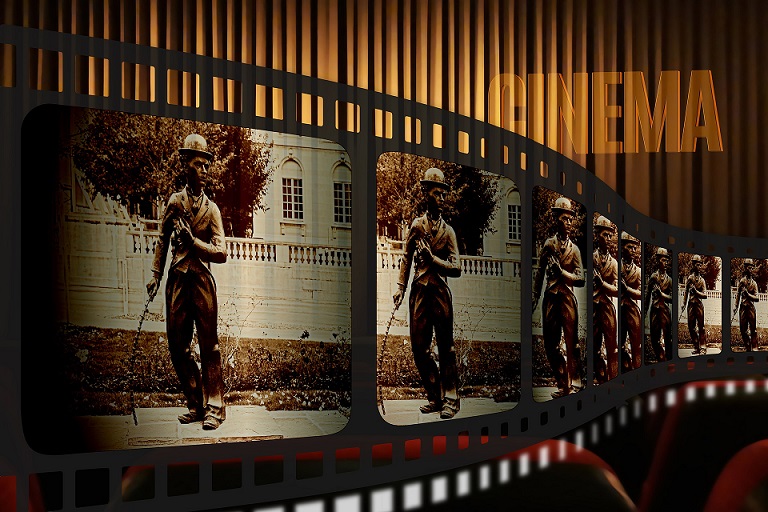It was 2010 when Ventura arrived in London with ‘Barcelona (a map)’, three years after its successful premiere. He came to show it for the first time in the UK, as part of the ‘Looking for Film in Literature’ cycle. He spoke exclusively to The Prisma. (The Prisma memoirs)
 Javier Polo
Javier Polo
In the midst of his haste and an agenda that included half an hour before attending the opera, we met in the traditional London neighbourhood of Covent Garden.
I confirmed in our chat what many say about him: that being a well-known Catalan film director, screenwriter and producer has not detracted from his warm personal manner, free of presumptuousness.
Ventura Pons Sala – who was born in Barcelona in 1945 – spoke about his films and about ‘Adrift (A la deriva)’, his latest release. He reflected on the complex situation of cinema and on piracy, which he considers ‘a crime’ that is difficult to combat.
He recognises himself as very ‘obsessive and meticulous’, although he is a very calm person in front of others and considers that one of the ‘big problems in Spain is that they do not seek the internationalisation of products’. He can say this without fear, because with 21 films to his credit, he has won a multitude of awards, as well as having presented them at the most important international festivals in the world and having achieved a great reception. This has happened in Berlin, Cannes, San Sebastian, Osaka, San Francisco, Toronto, New York, Karlovy Vary, Cartagena de Indias and Mar del Plata.
Ventura has been vice-president of the Spanish Academy of Cinematographic Arts and Sciences and is currently a director of the SGAE, a trustee of the Fundación Autor and owner of the film company Els Films de la Rambla, S.A., founded in 1985, which has produced many of his films, including ‘Adrift’.
 How to create good cinema from literature without ‘betraying’ the novel?
How to create good cinema from literature without ‘betraying’ the novel?
From good novels bad, mediocre or good films are made and from bad novels bad, mediocre or good films are made, there is no golden rule, there is no magic wand. I don’t think I’ve ever betrayed any author, but I’ve never betrayed myself either. You have to be respectful of the novel, but always respectful of yourself. I’ve won many awards as a scriptwriter, and they’ve always been for adaptations I’ve made from literature. You know why you adapt one thing or another, at a given moment it comes to your mind.
How can it be explained that ‘Barcelona (a map)’ arrives in London three years after its premiere, when it has been presented halfway around the world?
It’s curious, because it has been shown at festivals in more than forty countries and it hasn’t been shown here yet. It’s a film that has done very well. The problem with cinema is that travelling to theatres costs a lot, and if that’s difficult enough, travelling to other countries is even more difficult.
Why have many of your films been more highly valued abroad than in Spain?
I don’t know, these things happen all over the world. Many filmmakers are more appreciated outside their own country than in their own, as is the case with Woody Allen, Carlos Saura or Pedro Almodóvar.
 Years ago, there was a great tradition of Central European directors who went to Hollywood in the 30s or 40s because it was much more difficult for them to evolve in their own countries.
Years ago, there was a great tradition of Central European directors who went to Hollywood in the 30s or 40s because it was much more difficult for them to evolve in their own countries.
What strikes you about Lluís-Anton Baulenas, since you have adapted 3 of his plays: ‘Anita no pierde el tren’, ‘Amor idiota (Idiot love)’ and ‘A la deriva (Adrift)’?
They are works that I personally feel very good about. It’s a very rich and powerful material, where the characters have a lot of strength. I have made three films about books by Baulenas and three about plays by Sergi Belbel. We could say that Baulenas, Belbel, Benet i Jornet and Quim Monzó are people of my generation, so we look at the same society, we drink from the same culture and it’s logical that I understand them better. The important thing when you make a film is that you have to understand what you are explaining. They basically give me good stories.
Where did the idea of incorporating Boris Izaguirre into the filming come from?
It’s a very nice little touch. He is a very cultured person, very connected to cinema. His father was the director and founder of the film library in Venezuela, where I had a retrospective. We had friends in common and the role suited him very well. When I proposed it to her, he liked the idea. The filming was more relaxed, which is normal when someone is not in the profession. He follows in the tradition of writers who have played small roles in films.
 In recent years, Spanish cinema audiences have declined. Why is this?
In recent years, Spanish cinema audiences have declined. Why is this?
It is true. This winter there have been a few films that have worked, but, at the end of the day, it’s a sum of several factors.
Piracy is enormous in Spain, certain audiences have been driven out of cinemas, it’s a country that doesn’t like itself, the attitude has changed… Everyone should follow the same direction, because even if one is saved, it’s no good.
Why hasn’t the Spanish film industry become an international power?
Because it has not set out to do so. One of the big problems in Spain is that they are not looking to internationalise their products. People lack the ambition to internationalise. We have just come back from Japan, where we did a market study and we took action. Those who control the market are the Americans, but you have to be on the ball and try to make your products work. It’s very difficult. The market is very saturated, but these are the times we live in, if we don’t fight for it, what do we expect?
How do you manage to produce a film almost every year with the effort involved? What is your secret?
 I ask myself that question every day when I wake up… My life is cinema and cinema is my life, without wasting five minutes. It requires a lot of effort and sacrifice, so if you believe in your work, get to work.
I ask myself that question every day when I wake up… My life is cinema and cinema is my life, without wasting five minutes. It requires a lot of effort and sacrifice, so if you believe in your work, get to work.
The only secret I know is to believe in what you do and put all the passion you can into it. The more people your work can reach the better; at least you get a small grain of sand in the universe.
How much damage do you think piracy has done to cinema?
Very much so. People are not aware of the damage they are doing when they download a film. Last year there were 340 million downloads in Spain and still no one has put a stop to it. It’s a crime, people think it’s a right when it’s theft.
If a middle ground were to be found, for example by making innovative use of the means available today, could piracy be curbed?
Obviously, people should have access to content in an organised and high quality way, but they should pay for it. The rights belong to the owners, people who make a living from it. I hope that one day this will be solved, but we have already lost a lot of time.
 How do you rate Latin American cinema?
How do you rate Latin American cinema?
Cinema is like wine, it depends on the harvest of the year.
One year there may be very good Argentinian films, another year Mexican, although lately very good things are being made in countries that traditionally don’t make many productions, such as Uruguay.
For example the film ‘El Gigante (Giant)’. What happens is that there is no continuity. A few years ago Cuba was producing very interesting films and now not so much. It is a cinema that has a lot of strength with very interesting and powerful works. Latin America is a region with many dramas and contradictions, and cinema is a reflection of society.
What is your way of working like?
I am very obsessive and meticulous. Everyone works in their own way, but I like to work with everything prepared, I like to have very clear ideas, to enjoy the filming more. In my opinion, the best shooting is the one that is well prepared and improvisation is preparation, preparation and preparation. In the eyes of others I’m a very calm person, but inside the situation is very different.
(Translated by Cristina Popa – Email: gcpopa83@gmail.com) – Photos:












.jpg)












